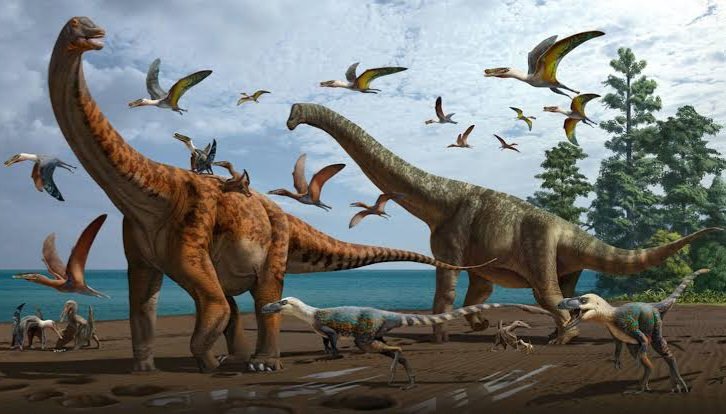Our Terms & Conditions | Our Privacy Policy
Dinosaur fossil with Cancer may provide new insights for human disease treatment: Scientists
In a remarkable discovery, researchers from the UK and Romania have uncovered evidence of cancer in a 70-million-year-old dinosaur fossil belonging to Telmatosaurus transsylvanicus. This herbivorous, cow-sized dinosaur, which once roamed what is now Romania, exhibited signs of a tumour in its jaw.
What makes this finding even more extraordinary is the detection of soft tissue structures resembling red blood cells near the tumour site, identified through high-powered microscopy. The preserved soft tissue, containing proteins, could offer crucial molecular-level insights into ancient diseases such as cancer. This rare preservation opens up possibilities for understanding how such illnesses evolved in prehistoric species and could contribute to modern medical research.
The study’s authors stress the importance of collecting and preserving fossilized soft tissues—not just bones—as future advancements in molecular analysis may yield deeper understanding of disease progression over time. A previous study had also found signs of cancer in Telmatosaurus transsylvanicus, further indicating that cancer has ancient evolutionary origins.
Senior author Professor Justin Stebbing of Anglia Ruskin University remarked that dinosaurs, being large-bodied and long-lived creatures, offer a valuable model for studying how species developed cancer resistance and vulnerability across millions of years.
Proteins—especially those found in calcified tissues such as bone—are more stable than DNA and less prone to degradation or contamination. This makes them particularly valuable for studying ancient diseases like cancer in palaeontological specimens.
While bones provide structural information, soft tissues contain proteins that offer molecular-level insights into the biological processes behind disease. Unlike skeletal remains alone, these soft tissue proteins can reveal how diseases developed and progressed.
The researchers emphasize that their study, which utilized relatively underexplored techniques, opens the door to further investigation that could lead to discoveries with potential benefits for human health. However, they stress that coordinated, long-term efforts to conserve fossils are essential to ensure future scientists have access to well-preserved specimens for advanced molecular research.
Images are for reference only.Images and contents gathered automatic from google or 3rd party sources.All rights on the images and contents are with their legal original owners.



Comments are closed.